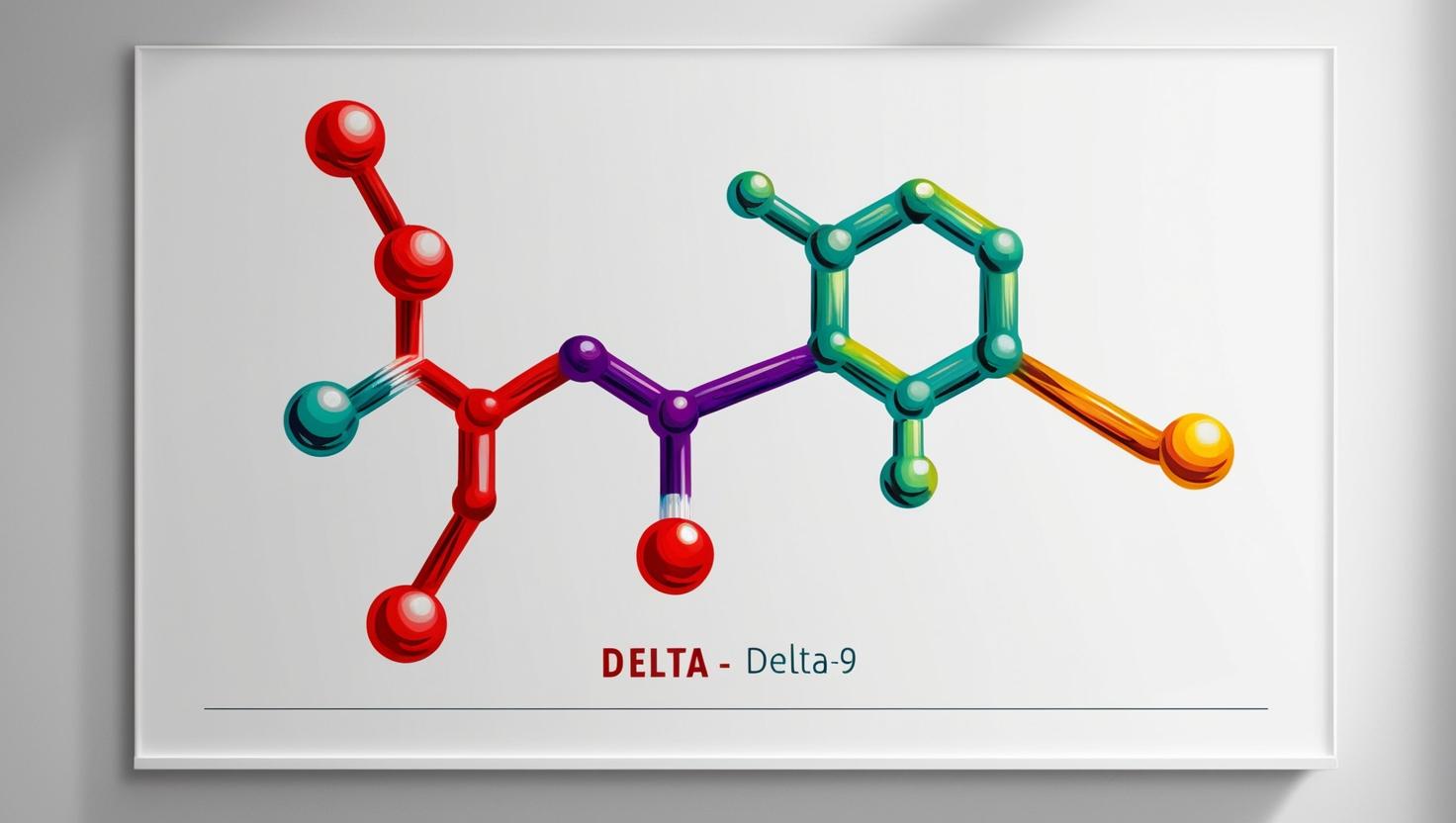What Is Delta 9 THC?
Delta 9 THC, short for delta-9-tetrahydrocannabinol, is the primary psychoactive compound found in cannabis. It is responsible for the “high” that users experience when consuming marijuana. As the most well-known and widely researched cannabinoid, Delta 9 THC has been a topic of interest for both medical and recreational purposes. Understanding its properties, effects, and legal status can help consumers make informed decisions about its use.
Chemical Composition and Function
Delta 9 THC is one of over 100 cannabinoids present in the cannabis plant. It interacts with the body’s endocannabinoid system (ECS), specifically binding to CB1 receptors in the brain and nervous system. This interaction leads to various psychoactive and physiological effects, such as euphoria, relaxation, altered perception, and increased appetite.
According to the National Institute on Drug Abuse (NIDA), Delta 9 THC mimics the body’s natural endocannabinoids and alters normal brain communication processes. Source
Effects of Delta 9 THC
The effects of Delta 9 THC can vary depending on dosage, method of consumption, and individual tolerance. Common effects include:
- Euphoria and Relaxation: Users often report feeling a sense of happiness and relaxation.
- Increased Appetite: Commonly referred to as the “munchies,” Delta 9 THC stimulates appetite.
- Altered Perception of Time: Users may experience changes in their perception of time and space.
- Potential Anxiety or Paranoia: Higher doses may induce anxiety or paranoia in some individuals.
Medical Applications
Research has demonstrated several potential medical benefits of Delta 9 THC, leading to its inclusion in FDA-approved medications such as dronabinol. Some of the key therapeutic applications include:
- Pain Relief: Delta 9 THC is often used to alleviate chronic pain conditions.
- Nausea and Vomiting Reduction: Particularly beneficial for cancer patients undergoing chemotherapy.
- Appetite Stimulation: Helpful for individuals with appetite loss due to medical conditions such as HIV/AIDS.
- Sleep Aid: Delta 9 THC can assist in improving sleep patterns for those with insomnia.
According to the American Cancer Society, cannabis-derived products like Delta 9 THC can be useful in managing cancer-related symptoms. Source
Legal Status
The legal status of Delta 9 THC varies by location. In the United States, the 2018 Farm Bill legalized hemp-derived cannabinoids containing less than 0.3% Delta 9 THC by dry weight. However, marijuana-derived Delta 9 THC remains federally illegal, though many states have legalized it for medical or recreational use.
For updated information on cannabis laws in your state, visit the National Conference of State Legislatures (NCSL). Source
Potential Risks and Side Effects
While Delta 9 THC offers potential benefits, it also comes with risks, particularly with prolonged or excessive use. Some of the side effects include:
- Cognitive Impairment: Affecting memory, attention, and decision-making abilities.
- Dependency and Withdrawal: Regular use can lead to dependency and withdrawal symptoms.
- Increased Heart Rate: Short-term use can result in elevated heart rate and potential cardiovascular risks.
- Mental Health Concerns: Some individuals may experience anxiety, paranoia, or psychotic symptoms.
—-
Delta 9 THC is a powerful cannabinoid with both recreational and medicinal applications. However, its misuse can lead to significant health risks, including dependency and cognitive impairment. If you or a loved one is struggling with substance abuse, seeking professional assistance is crucial. Bliss Recovery provides expert support and personalized treatment plans to help individuals achieve lasting recovery.
For more information or to get help, reach out to Bliss Recovery today. Their dedicated team is ready to support you on your journey to recovery.

